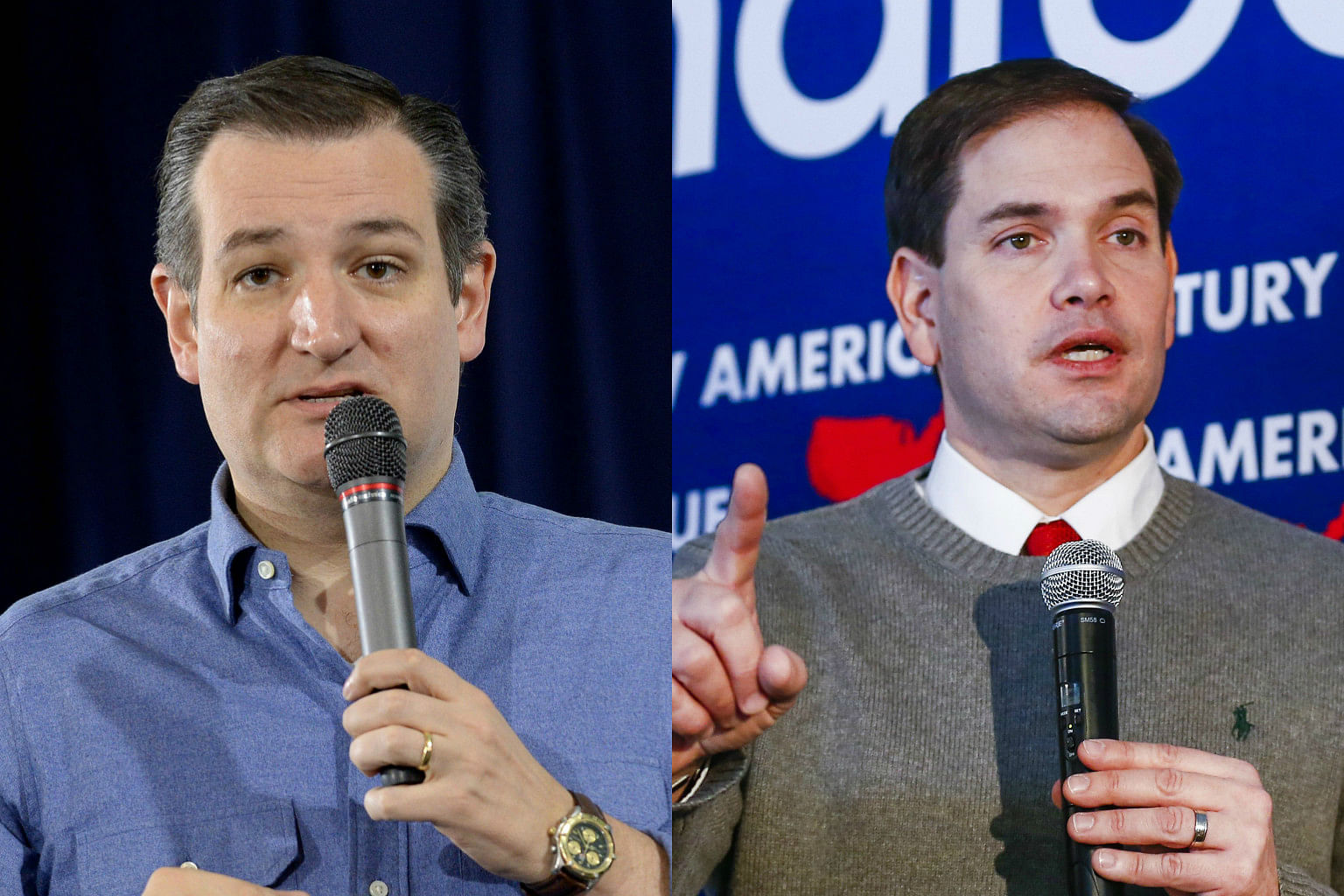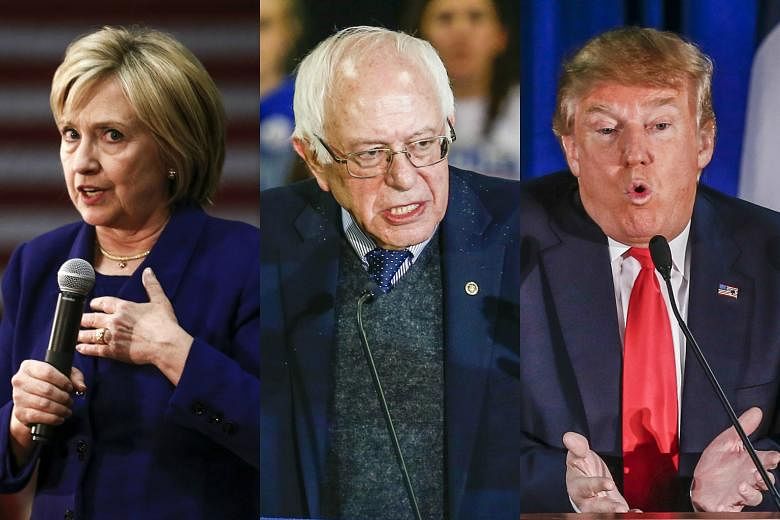WASHINGTON (AFP) - Residents of the United States heartland state of Iowa will cast the first votes in the presidential nominations process on Feb 1, ahead of the Nov 8 election.
Here are 10 key things to know about the US presidential campaign:
1. The Republican field, with more than a dozen candidates at the start, is unusually large and fractured.
The rare absence of establishment-backed Republicans atop the field - even as relative political novices like Mr Donald Trump have flourished - has led some to predict a serious splintering of the party.
2. The success of Senator Bernie Sanders has stunned many observers, especially as a self-proclaimed democratic socialist in a country where the "socialist" label has been political poison.
But while some young and liberal Democrats have embraced his blunt populist message, his lack of foreign policy experience could hurt him.
3. Mr Trump has taken Teflon politics to new heights, soaring in the polls despite (or because of) a steady stream of provocative statements that would have doomed many a candidacy.
Instead, he has dominated the spotlight with what even critics say has been a masterful use of social media.
4. Republican leaders had hoped to avoid a long and costly primary battle that could pull the ultimate victor too far to the right.
Yet analysts say that the nominating season could extend well into the spring, and that Republicans might not even know their candidate's name until the party's nominating convention in July.
5. Many people in both parties might be holding their noses in the voting booth. Both Mr Trump and Mrs Hillary Clinton have strong supporters, but also unusually high negatives in nationwide polls.
A recent NBC News/Wall Street Journal survey found nearly half of US voters had negative views of Mrs Clinton, and six in 10 had such views of Mr Trump.
6. The Supreme Court's "Citizens United" ruling in 2010 made it far easier for the independent political groups known as Super PACs to raise and spend huge amounts of money in favor of candidates, potentially a difference-maker.
Yet someone like the billionaire Trump, as he often points out, need not be beholden to big-money donors.
7. Despite the unexpectedly strong challenge from Sen Sanders, Mrs Clinton remains well-positioned to become the first woman to capture a major party's nomination.
She could then make history as the country's first woman president - in which case the ever-controversial former president Bill Clinton would become the first First Husband.
8. Yet, history and voter fatigue do not favor the continued grip on power of a party that has already controlled the White House for two terms.
There are exceptions, of course - most recently, the 1988 election of Republican George H.W. Bush after the eight-year Ronald Reagan presidency.
9. The Hispanic factor is worth watching. Both Sen Ted Cruz and Sen Marco Rubio have Cuban roots, and backers say they could help the party among traditionally Democratic Latino voters (70 per cent of whom were Obama voters in 2012).

10. As in every election, wild-card issues can drastically alter the dynamics.
Some possibilities: a major terror attack involving Americans, new troubles in the Middle East, a contentious Supreme Court ruling on immigration, another hot summer of racial tensions, a damaging FBI report on Mrs Clinton's handling of State Department e-mails, and of course the fate of the oh-so-rocky US economic recovery.

